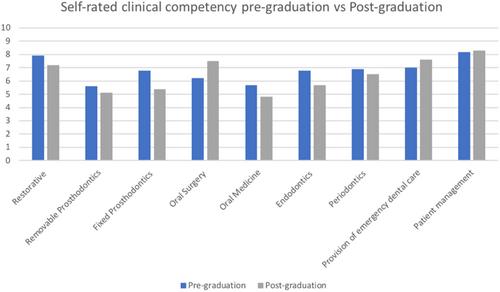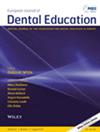Before and after: COVID-19 impacts on dental students' well-being, clinical competency and employment opportunities
Abstract
Introduction
The onset of COVID-19 challenged dental schools worldwide, impacting clinical training. In Australasia, New Zealand adopted a COVID-19 ‘elimination strategy’, involving nationwide lockdowns that halted face-to-face education. The ‘elimination strategy’ adopted at the pandemic onset, which permitted return to ‘normal life’ in 2021, allowed the pandemic impacts and those related workforce transition to be teased out. This study aimed to evaluate perceived impacts of the COVID-19 pandemic on health and well-being, clinical competency and employment opportunities of dental students.
Materials and Methods
Two surveys were distributed to final year dental students (n = 94; age range 20–35): one during their final semester and the second six months following graduation. Surveys included open and closed ended questions on participants' self-perceived impacts of COVID-19 on health and well-being, clinical competency and employment opportunities. Average percentages were calculated and descriptive statistics performed.
Results
Pre-graduation, participants reported COVID-19 negatively impacted their mental and social health. Slightly lower scores on all dimensions of health post-graduation were likely due to transitioning to the workforce. Pre-graduation, less than half of participants felt prepared to provide the full scope of dental treatment; post-graduation most felt confident to do so. Most participants expected COVID-19 would negatively impact employment opportunities for their cohort, despite all participants being employed when the second survey was conducted.
Conclusion
Participants self-rated health and clinical competency scores were lower post-graduation when NZ returned to ‘normal life’, meaning lower scores were related to workforce transition. Dental schools need to be prepared to provide alternative forms of dental education and help mitigate mental health impacts of future major course disruptions.


 求助内容:
求助内容: 应助结果提醒方式:
应助结果提醒方式:


